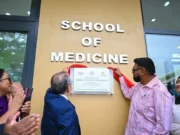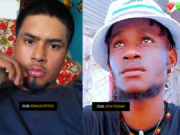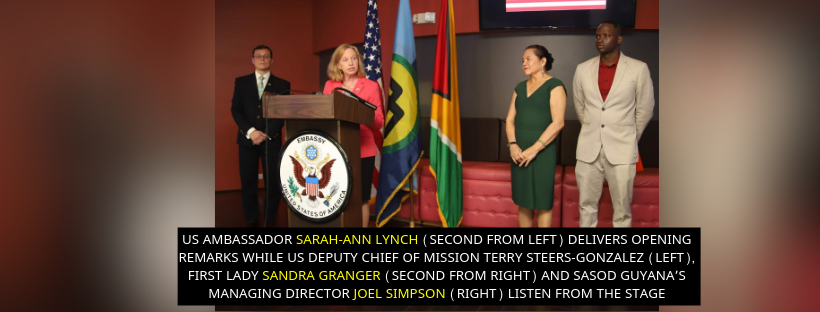Guyana’s lesbian, gay, bisexual, transgender and queer (LGBTQ+) movement has a very long way to go on its journey towards equal rights here. However, some strides have been made and have not gone unnoticed.
The movement has had some small triumphs over the past year: in June 2018, Guyana became the first country in the English-speaking Caribbean to host a Pride Parade; in November 2018, the Caribbean Court of Justice delivered a landmark decision declaring a colonial-era law against cross-dressing unconstitutional, thereby striking it down. Further, on World Day for Social Justice on February 20 this year, the Society Against Sexual Orientation Discrimination (SASOD) Guyana closed its first phase of two-day training workshops where 153 police officers from all across the country were trained in Gender, Sexuality and Human Rights.
These successes were recently acknowledged by the United States.
In observance of the International Day Against Homophobia, Transphobia, and Biphobia (IDAHOTB) on May 17, the United States Embassy in collaboration with SASOD Guyana last Wednesday hosted a reception at Aura Sky Lounge, Pegasus Hotel Guyana.
There, Her Excellency Sarah-Ann Lynch, US Ambassador to Guyana, posited, “In Guyana and many other parts of the world, members of the LGBT community have sometimes faced violence, harassment, intimidation, and disregard of their basic human rights. More troubling is the fact that despite being signatories to the many United Nations human rights agreements, many governments still seem far from establishing real legal protections for members of the LGBT community.”
She continued, “[However], gay rights are human rights [and] if we as a society are committed to ensuring that all people are respected and treated equally, then it is imperative to remember that this includes the LGBT community as well. Justice and protection must be for all.”
The Ambassador commended SASOD Guyana for leading the effort to bring about judicial and legislative change to ensure justice and protection for all Guyanese.
“We are encouraged by the small triumphs for the gay community in Guyana recently,” Ambassador Lynch said. “The Government of Guyana has signalled a softer tone towards the LGBT community, permitting the first gay pride parade in June 2018. We commend the government for its support. And last November, the Government said that it respects the Caribbean Court of Justice’s landmark decision that found that the Guyanese law against cross-dressing was unconstitutional. These are slow but promising changes in attitude at the national level,” Ambassador Lynch remarked.
Meanwhile, speaking on behalf of SASOD Guyana, Managing Director Joel Simpson echoed Ambassador Lynch that IDAHOTB 2019 was a moment for Guyana to celebrate the recent LGBTQ+ victories. Simpson, however, noted that the struggle for non-discrimination and equality still continues as LGBTQ+ Guyanese face violence and discrimination in every sector of their lives. He reminded the gathering that Guyana’s laws still criminalise same-sex intimacy between consenting adult men and that colonial-era “small crimes” like vagrancy and loitering target “the poorest of the poor” in society.
Simpson further noted the social and economic challenges that LGBTQ+ persons face in accessing public transportation, education, healthcare, and work in the formal economy. He said that the IDAHOTB 2019 theme, which was “Justice and Protection for All”, is timely as SASOD Guyana is proposing a simple amendment to the Prevention of Discrimination Act 1997 to include sexual orientation, gender identity, and gender expression as categories of protection from discrimination.
While alerting the gathering that the 1997 Act only deals with discrimination in relation to the right to work, Simpson posited that just adding those three terms would be an important first step in providing legislative protection from discrimination for LGBTQ+ Guyanese who face social and institutional discrimination and have no specific recourse under the law.













